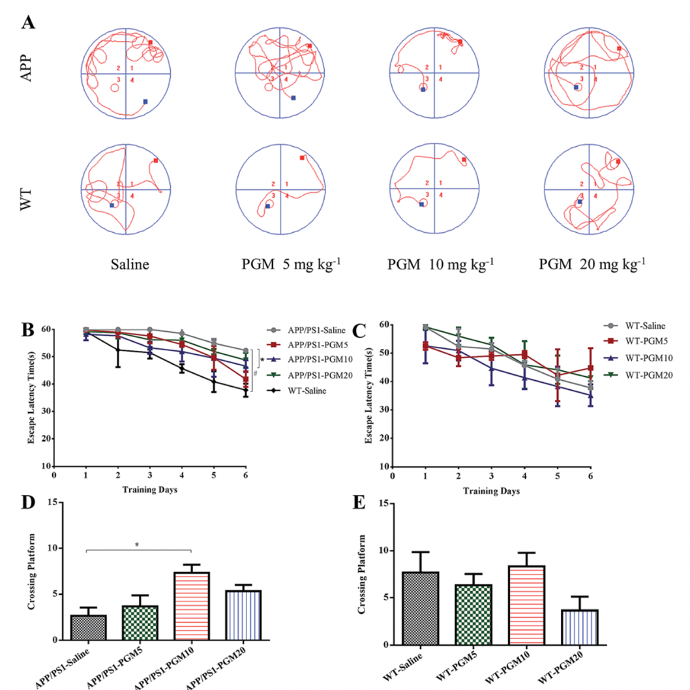Alzheimer’s disease (AD) is a neurodegenerative disease that mainly affects aged people and is characterized by insidious onset and progressive changes in personality and behavior and impairment of cognitive functions such as memory, language, thinking, understanding, focusing, reasoning, planning, the performance of routine tasks, judgment, and decision-making. AD is characterized by the presence of many abnormal plaques (also known as amyloid β (Aβ) plaques) and tangled fiber bundles (now called neurofibrillary tangles or tau protein). It is a major public health challenge, and there is no efficient treatment.
Functional foods have gained a great deal of attention in recent years as an alternative and complementary therapy. Like many functional foods, Maitake is an edible or medicinal mushroom that is traditionally used in China to promote health and longevity. Polysaccharide-protein-B-glucan (PGM), extracted from Maitake, has been reported to have strong immunomodulatory activity. Scientists have also found, after research, that PGM also has neuropharmacological activity. Recently, it has been found that polysaccharides extracted from Maitake can improve cognitive function by inhibiting oxidative stress (as shown in the figure below).

Note: n=12 mice per group. (A) The changes of swimming path. (B and C) The latency to find a hidden platform in APP/PS1 (B) and WT mice (C). (D and E) The number of platform crossing during the spatial probe test in APP/PS1 (D) and WT mice (E). #P < 0.05 vs. WT-saline, *P < 0.05 vs. APP/PS1-saline.
In the present study, researchers investigated the effects of PGM on cognitive impairment and neuropathology in APPswe/PS1DE9 (APP/PS1) transgenic mice, a widely used animal model of AD. The results found that PGM improved learning and memory deficits and attenuated neuronal loss and histopathological abnormalities in APP/PS1 mice. In addition, PGM treatment activated microglia and astrocytes and promoted the recruitment of microglia to Aβ plaques. At the same time, PGM enhanced Aβ phagocytosis, thereby reducing the burden of Aβ and pathological changes in the cerebral cortex and hippocampus of APP/PS1 mice. In addition, PGM had no significant effect on body weight in mice. In conclusion, these findings suggest that administration of PGM, a component extracted from Maitake, may improve memory impairment through immunomodulatory effects and that dietary supplementation with PGM may have potential benefits for memory dysfunction associated with brain aging.
Bai, Y., Chen, L., Chen, Y., Chen, X., Dong, Y., Zheng, S., … & Li, H. (2019). A Maitake (Grifola frondosa) polysaccharide ameliorates Alzheimer’s disease-like pathology and cognitive impairments by enhancing microglial amyloid-β clearance. RSC advances, 9(64), 37127-37135. [Link]
